
views
Assessing the Situation

Get to the root of the problem. In order to deal with life being unfair, you first must get to the core of the bad apple you’ve been tossed. Ask yourself what, exactly, is the root cause of this particular unfairness. Sometimes the cause will be something within your control, such as getting into a car accident because you were texting and driving. Other times the root cause is completely out of your control, such as being sexually assaulted or diagnosed with a life-threatening medical condition. Try sitting down and making a list of all possible causes of why life is unfair at this particular moment in time.
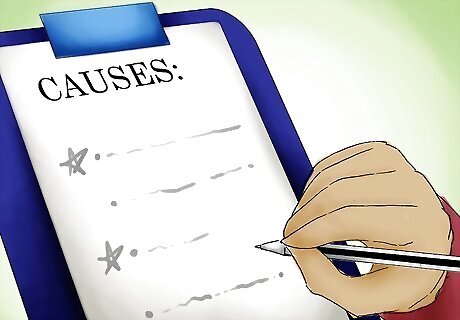
Determine what you have control over in the situation. An important part of learning how to deal with life being unfair is assessing what you do and do not have control over in a situation. Remember that there are certain things you can control, like your behavior, and there are other things you cannot control, such as freak accidents, debilitating diseases, and being the victim of a crime. Try making a list of all the causes of unfairness in a situation. Make a star beside each item that you do have control over.

Take responsibility for your behavior. In life you must take responsibility for who you are and for your actions and behaviors. If you are an active participant in a situation that is unfair, you must own up to your role. If, for example, you got a D on your chemistry exam and did not study for the test, you must take responsibility for your lack of preparation.
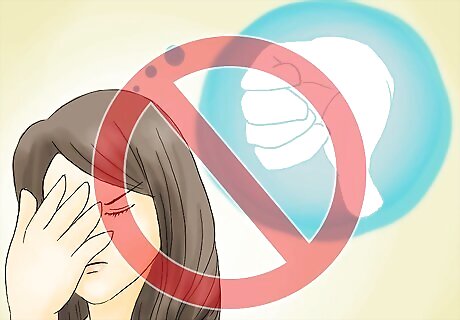
Do not blame yourself for events and situations out of your control. Life is unfair, and oftentimes it has nothing to do with your thoughts, actions, or behavior. For example, you should not blame yourself if you are a victim of sexual assault or if you recently received a diagnosis of lung cancer.
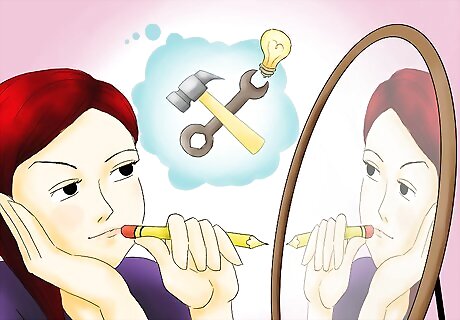
Determine if you have an internal locus of control. Your locus of control is your sense that things are either within your control or outside of your control. Some people have a high degree of feeling like they are in control of their lives, while other people feel like they have little to no control over their own lives. Consider your sense that you are in control of your life. If you tend to feel like you have little control, then you may need to work on developing a stronger sense of control.
Taking Action
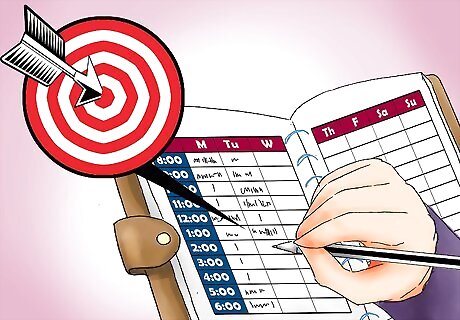
Develop your internal locus of control. Having an internal locus of control is ideal because it will help you to feel like you can do something to change the things that you don’t like about your life, such as those things that seem unfair. Try making a list of everything in your life that you do have control over, including little things like what to eat for dinner, what to wear, and how to spend your free time. This may help you to start realizing that you have more control than you think. Some other things you can do to improve your internal locus of control include: Building your confidence. Developing your resilience. Setting goals for yourself. Improving your problem solving skills.

Think rationally before acting. Before you send a nasty email to the co-worker who just received a promotion by throwing you under the bus, take a moment to think rationally about the situation. If someone cut you off in traffic, think carefully before chasing them down in your Chevy Malibu. Breathe deeply and wait a few minutes – or days – before you react.

Address the situation with those involved. If your situation involves another person, it’s important that you have a direct and private conversation with them to address your grievances. For example, if your best friend slept with your husband it is important that you discuss the issue with each of them privately. If your neighbor is throwing raging parties every weekend and you are livid about how unfair this situation is, you need to talk to her directly.
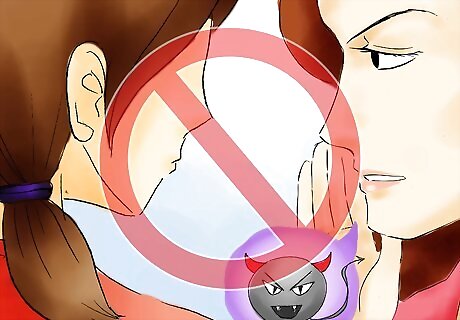
Change your behavior. Sometimes life’s lemons grow out of our own actions and behaviors. If you are a contributing cause to your own misfortune, it’s important to change your behavior so that life doesn’t continue to seem unfair. For example, if you lost a friend because she could no longer handle your incessant gossiping, try to stop your gossip. If you got fired because you were repeatedly late for work, make sure that being on time becomes a priority in your life.

Talk to a friend, family member, or co-worker for support. Sometimes taking the action of having a conversation with someone you trust can help you deal with life being unfair. Everyone experiences unfairness at some point in life, and your friend, family, member, or co-worker might have a similar story to share or advice for how to proceed. The empathy and compassion from of a trusted confidant will help you gain perspective on the situation.

Seek out a support group. Getting support from others who are dealing with similar situations can be an important part of dealing with life’s unfair circumstances. For example, if you have been diagnosed with a chronic or terminal illness, try finding a support group in your city for people suffering from the same disease. If you lost a child, seek out group support for parents dealing with the death of a child.

Consider counseling. Seeking help from a mental health professional such as a psychologist or counselor can help you deal with unfair situations. In most cases, your health insurance will cover at least part of the cost of mental health services. It is especially important to seek help if you are the victim of mental, physical, or sexual abuse or rape, if you are dealing with addiction, or if you are suffering from depression or mood swings. A counselor can help you look at things objectively and come up with strategies to deal with your particular situation. To find a counselor, first call your insurance company and find out what providers are covered by your insurance. Call at least three counselors who accept your insurance and ask if they are accepting new patients and what types of counseling they specialize in such as cognitive behavioral therapy or grief counseling. Set up an initial appointment with a counselor who fits your needs. If it doesn’t seem like a great fit after the first few visits, give someone else a try.
Accepting Unfairness as a Part of Life

Determine if you might have a victim mentality. Having a victim mentality means that you might feel like other people are the cause of your problems or that things never work out your way. This may cause you to wallow in negative thoughts and complain often. If this is something you struggle with, then it is important to work on overcoming this mindset. Try to focus on the positives in your life instead of dwelling on the negatives. For example, if you are having a bad day, then you might try to identify three things that have gone well, even if they are little things like having a good breakfast, listening to your favorite song on your way to school or work, or having the luxury of some quiet time to read before bed.
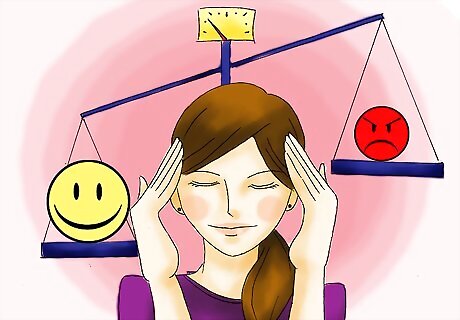
Change your mindset. Try thinking of your situation in a different light. While you might not be able to control what happens in any given stage of life, you certainly can control how you perceive a situation. Instead of seeing your diagnosis of high blood pressure as a curse, re-imagine the situation as an opportunity to eat healthier and exercise more. If your landlord refused to renew your lease, try to think of the positive aspects of having a new apartment. Try sitting down with a journal and writing about the unfair situation in your life, why it is so awful, and what positive things you might gain from the situation. Ask a friend or family member to help you come up with new, more positive ways to think about the unfair situation. They might have ideas you wouldn’t think of on your own.
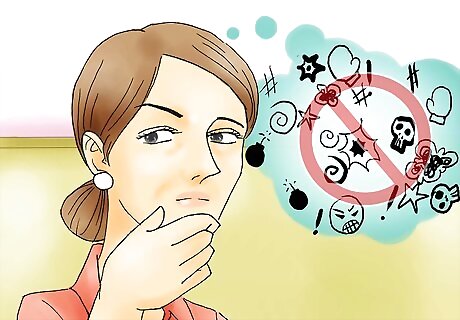
Put a stop to obsessive thinking. When life is unfair, we tend to ruminate on the injustice and allow it to take up precious mental real estate. A way to begin working toward acceptance is to stop negative and obsessive thinking in its tracks. When you find yourself obsessively thinking about life being unfair, try taking a deep breath and thinking about something entirely different.

Practice gratitude. When life is unfair, it’s easy to get caught up in a negative thinking loop. Instead of focusing on the job you didn’t get, try being grateful for the job you already have. Rather than being upset about not having enough money to take a trip to Europe, try practicing gratitude for having the flexibility and funds to take a long weekend in New York City.




















Comments
0 comment